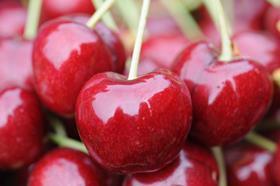
A research project aimed at the New Zealand pipfruit, kiwifruit and summerfruit industries could help growers double their per hectare yields, according to Plant & Food Research’s Jill Stanley.
Can you tell us a little bit about the background of the research programme and what it hopes to achieve?
Jill Stanley: This research on cherries is part of a large research programme which is funded by New Zealand’s Ministry of Business, Innovation and Employment (MBIE), Summerfruit New Zealand, Pipfruit New Zealand, Zespri and Prevar. It is being led by Dr Stuart Tustin with the assistance of the Plant & Food Research team. The programme aims to significantly increase productivity for the New Zealand pipfruit, kiwifruit and summerfruit industries. For cherries, the aim is to at least double yield per hectare.
How is the programme being delivered for cherries?
JS: Existing cherry tree orchard layouts intercept approximately 60 per cent to 65 per cent of incoming radiation, and yields per hectare are lower than in many other tree crops. Light penetration into the centre of these canopies can be less than 5 per cent, reducing fruit quality. New orchard system designs are being developed, which aim to increase the productivity of high quality fruit by increasing light interception to around 85 per cent. They also improve precocity, harvest index and light distribution within the canopies to ensure good fruit quality throughout the tree.
What advantages do you anticipate the finding of the study to deliver to the New Zealand cherry industry and how will this help the sector become more competitive on the global stage?
JS: The advantage to the New Zealand cherry industry will be increased productivity, orchard efficiency and a faster return on investment, from both earlier cropping and hopefully a doubling of the yield.
How long will the programme be conducted and how many properties are involved?
JS: We are over two-years through a six-year programme. The initial trial block for cherries is located on a research orchard in Clyde. However, we are holding field days and focus group sessions for growers and we are encouraging growers to plant trial blocks as well.



